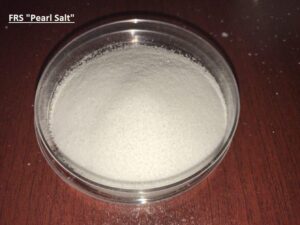Essential Resources for Global Manufacturing
The Importance of Minerals in Industry
Minerals are the backbone of modern industry, playing a crucial role in manufacturing, construction, technology, and energy production. From steel and cement to electronics and pharmaceuticals, minerals serve as essential raw materials for countless industrial applications.
With increasing global demand and advancements in technology, industries rely on sustainable mining, efficient processing, and innovative mineral applications to drive economic growth. This article explores the most important industrial minerals, their global production, and their applications in key industries.

What Are Industrial Minerals?
Industrial minerals are naturally occurring, non-metallic minerals used in various industries for their chemical, physical, and mechanical properties. Unlike metallic minerals (such as gold and iron), industrial minerals are valued for functionality rather than metal content.
Key Characteristics of Industrial Minerals:
Non-Metallic Composition – Used for their properties rather than metal extraction.
Wide-Ranging Applications – Found in construction, chemicals, energy, and technology.
Sustainable and Recyclable – Many industrial minerals can be reused and repurposed.
Essential for Modern Infrastructure – From buildings to electronics, they are critical in daily life.
Examples of industrial minerals include limestone, bentonite, gypsum, barite, silica, feldspar, kaolin, and talc.
Major Industrial Minerals and Their Applications
1. Limestone – The Foundation of Construction
- Used in cement, concrete, and steel production.
- Essential for roads, bridges, buildings, and infrastructure.
- Processed into quicklime and hydrated lime for chemical and environmental uses.
2. Bentonite – A Versatile Industrial Clay
- Used in oil and gas drilling as drilling mud.
- Found in cosmetics, pharmaceuticals, and cat litter.
- Acts as a binding agent in metal casting and foundries.
3. Gypsum – The Key to Plaster and Drywall
- The primary component in plasterboard and cement.
- Used in agriculture to improve soil quality.
- Essential for medical applications like orthopedic casts.
4. Barite – Essential for Oil and Gas Industry
- Increases drilling fluid density, stabilizing oil wells.
- Used in paint, plastics, and radiation shielding materials.
- Found in automotive and aerospace coatings.
5. Silica – The Backbone of Glass and Electronics
- Main component in glass manufacturing (windows, bottles, optical fibers).
- Used in semiconductors, solar panels, and microchips.
- Critical in industrial sand for foundries and construction.
6. Feldspar – Essential for Ceramics and Glass
- Key ingredients in ceramic tiles, porcelain, and glass production.
- Used in paints, plastics, and rubber for chemical resistance.
- Found in abrasives and industrial fillers.
7. Kaolin – The White Mineral for Paper and Cosmetics
- Used in paper coating for smooth printing surfaces.
- Found in cosmetics, pharmaceuticals, and ceramics.
- Acts as a filler in rubber, plastics, and paint industries.
8. Talc – The Softest Industrial Mineral
- Used in cosmetics, baby powder, and personal care products.
- Found in plastics, ceramics, and pharmaceuticals.
- Improves paint durability and surface smoothness.
9. Graphite – A Key Material for Energy and Lubrication
- Used in battery production, including lithium-ion batteries.
- Essential for steel manufacturing and lubricants.
- Found in high-performance electronics and fuel cells.
10. Fluorspar – Critical for Chemical and Metallurgical Industries
- Used in aluminum smelting, steel production, and fluorine-based chemicals.
- Found in refrigerants, glass, and ceramics.
- Essential for making hydrofluoric acid for industrial use.
Global Production and Leading Producers of Industrial Minerals
1. China – The World’s Largest Mineral Producer
- Dominates production of rare earth elements, graphite, and fluorspar.
- Leading supplier of silica, feldspar, and kaolin for global industries.
- Invests heavily in sustainable mining and processing technologies.
2. United States – A Major Supplier of Industrial Minerals
- Produces limestone, bentonite, gypsum, and barite for domestic and international markets.
- Key supplier of silica and feldspar for the glass and ceramics industry.
- Expanding mineral processing technologies to reduce environmental impact.
3. India – A Growing Industrial Mineral Hub
- Major exporter of bentonite, feldspar, and kaolin.
- Supplies talc, gypsum, and barite for pharmaceuticals and construction.
- Increasing mineral-based manufacturing industries.
4. Turkey – Leading Producer of Bentonite and Gypsum
- A top supplier of white bentonite for cosmetics and pharmaceuticals.
- Produces high-purity gypsum and limestone for construction.
- Expanding export markets for industrial minerals worldwide.
5. Brazil – A Key Player in Talc and Graphite
- Produces high-grade talc for cosmetics and paper industries.
- One of the largest graphite suppliers for battery technology.
- Investing in sustainable mineral extraction.
The Role of Minerals in the Future of Industry
1. The Shift Toward Sustainable and Green Energy Minerals
1.1 Minerals Powering Renewable Energy
With the global push for carbon neutrality, minerals play a crucial role in renewable energy technologies. Key minerals include:
- Lithium, Cobalt, and Nickel – Essential for battery production in electric vehicles (EVs) and energy storage systems.
- Silicon and Gallium – Critical for solar panel manufacturing and semiconductor technology.
- Rare Earth Elements (REEs) – Used in wind turbine magnets and high-performance electronics.
- Graphite – A key material in lithium-ion batteries and fuel cells.
These minerals are the driving force behind solar, wind, and battery-powered solutions, helping industries transition toward low-carbon technologies.
1.2 The Role of Industrial Minerals in Energy Efficiency
Beyond renewable energy, industrial minerals such as bentonite, gypsum, and perlite contribute to energy-efficient construction and manufacturing.
- Bentonite and perlite are used for insulation in buildings, reducing energy consumption.
- Gypsum is essential for drywall production, improving thermal regulation in homes and offices.
- Magnesium-based minerals enhance lightweight, high-strength materials for energy-efficient vehicles and aircraft.
2. Minerals in Advanced Manufacturing and Smart Technology
2.1 The Rise of High-Tech Materials
Industries are shifting toward advanced materials made from minerals with unique properties, such as:
- Silica and quartz – Used in semiconductors, microchips, and fiber optics for high-speed communication.
- Titanium dioxide – Found in high-performance coatings, aerospace materials, and medical implants.
- Zirconium and tungsten – Used in heat-resistant and high-strength alloys for industrial applications.
These minerals are revolutionizing electronics, automation, and AI-driven industries by providing stronger, lighter, and more efficient materials.
2.2 The Role of Minerals in 3D Printing and Nanotechnology
The future of manufacturing is being reshaped by 3D printing and nanotechnology, both of which rely on high-purity minerals:
- Alumina and silica powders are used in 3D printing for aerospace and medical applications.
- Nanoparticles from titanium dioxide and silver improve coatings, sensors, and antibacterial surfaces.
- Graphene, derived from graphite, is being developed for next-generation flexible electronics and energy storage.
These advancements are making industrial processes more efficient, cost-effective, and sustainable.
3. The Growing Importance of Circular Economy and Mineral Recycling
3.1 Reducing Dependence on Virgin Mineral Resources
To address resource depletion and environmental concerns, industries are focusing on:
- Recycling lithium, cobalt, and nickel from old batteries to support EV production.
- Reprocessing industrial minerals like glass, aluminum, and gypsum to reduce waste.
- Using reclaimed silica and rare earth elements from electronic waste (e-waste).
3.2 Sustainable Mining and Responsible Sourcing
Governments and corporations are implementing eco-friendly mining practices to:
- Minimize water and energy consumption in mineral extraction.
- Reduce carbon footprints by using renewable energy in mining operations.
- Adopt ethical sourcing policies to prevent human rights violations in mineral supply chains.
With increasing regulations, sustainable mineral sourcing will become a major focus for global industries.
4. Critical Minerals for Future Technologies
4.1 Artificial Intelligence (AI) and Quantum Computing
AI and quantum computing require high-purity silica, rare earth elements, and superconducting materials to function effectively.
- Neodymium and dysprosium are crucial for AI-driven robotics and advanced computing systems.
- Gallium and indium are used in quantum dots and optical communication devices.
These minerals will be in high demand as AI and machine learning expand into healthcare, finance, and automation.
4.2 Aerospace and Space Exploration
As space exploration grows, specialized minerals will be required for satellites, spacecraft, and extraterrestrial mining:
- Titanium and aluminum alloys – Used for lightweight, high-strength aerospace materials.
- Platinum-group metals (PGMs) – Found in fuel cells and space technology applications.
- Basalt and lunar regolith (moon dust) are being explored for future space colonization and construction.
The space industry will drive new mineral discoveries and mining technologies in the coming decades.
5. The Future of Industrial Minerals in Global Trade and Economics
5.1 Increasing Global Demand for Mineral Resources
As populations grow and economies expand, industries will require more minerals than ever:
- Developing nations like India and Brazil are ramping up infrastructure projects, increasing demand for cement, steel, and industrial minerals.
- The rise of electric vehicles (EVs) and green energy is fueling demand for lithium, cobalt, and rare earth elements.
- Advanced manufacturing and automation will require high-tech minerals like tungsten, gallium, and graphite.
5.2 Geopolitical Challenges and Mineral Supply Chains
Global reliance on a few mineral-rich nations has led to concerns about supply chain disruptions. To address this:
- Countries are diversifying mineral sources and investing in domestic mining operations.
- Recycling and urban mining (extracting minerals from e-waste) are becoming strategic priorities.
- International partnerships are forming to ensure fair and ethical mineral trade.
With growing demand and geopolitical risks, industries must focus on securing stable and sustainable mineral supplies.
The Growing Importance of Industrial Minerals
Industrial minerals are essential resources that support global manufacturing, infrastructure, and technology. From construction materials like limestone and gypsum to high-tech minerals like graphite and silica, they play a crucial role in modern industry.
With the rising demand for eco-friendly and sustainable solutions, the future of industrial minerals will be shaped by innovations in processing, recycling, and green technologies. As industries evolve, these minerals will remain the foundation of economic growth and technological advancement worldwide.
https://iranmineral.net/starting-a-mineral-business/

